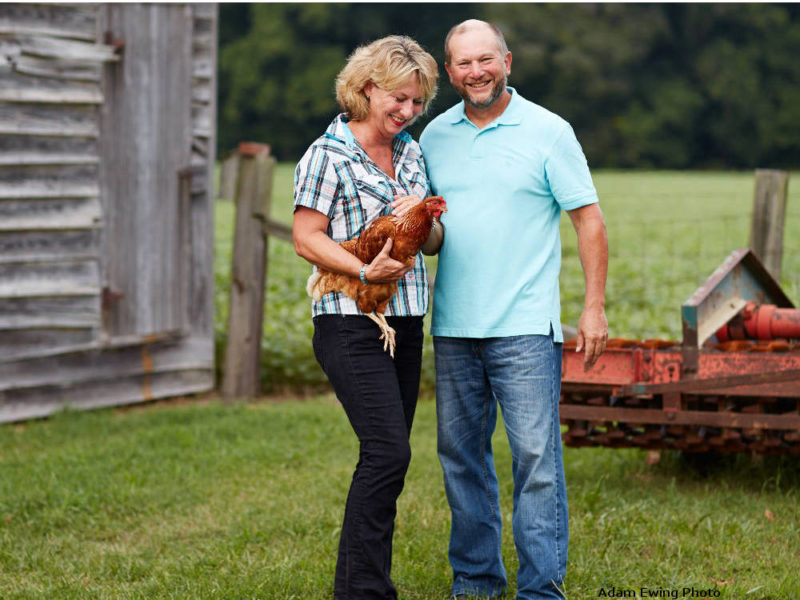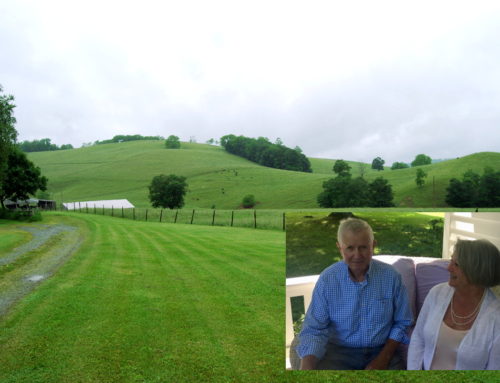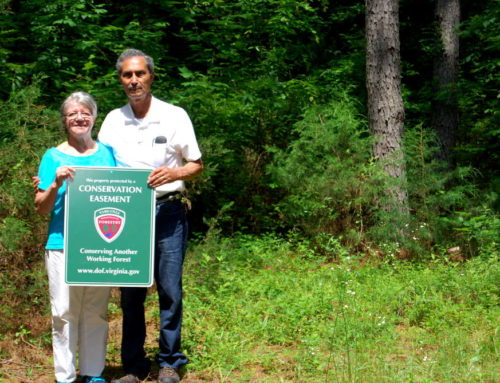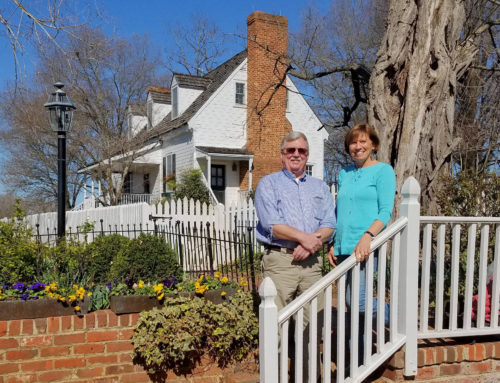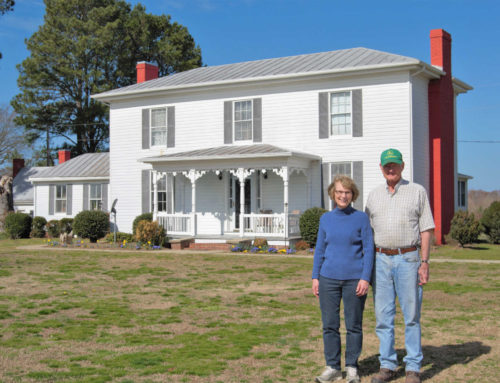Time was, you could earn a good income in southeast Virginia on your own land, in forestry or growing peanuts.This is no longer true, said Michael Drewry, an attorney specializing in land use and local government law who farms nearly 250 acres in Sussex and Surry counties. He also serves on the Surry County Board of Supervisors. Drewry recently placed a conservation easement on his farm and assisted his parents, Howard “Cutter” and Joan Drewry, in placing an easement on their adjacent 130-acre farm.

The historic Palmyra Inn, built in the 1740s, has been threatened by proposals to widen Route 31. (Courtesy Drewry Farms)
He’d like to help a lot of other farmers do the same.
Now that the “peanut bubble,” as Michael Drewry calls it, is a thing of the past, farmers in the region need cash to sustain their farms as they convert to other more profitable crops. A conservation easement may serve as a financial bridge because it can reduce real estate taxation and may yield tax credits that can be sold for cash.
“Not many farmers are aware that cash is there,” said Drewry, who, as a member of a family that has been farming in Virginia since the 1600s, has a deep understanding of the difficulties facing farmers.
And if too few landowners are aware of the benefits of conservation easements, too many have been misinformed about them, said Drewry.
Landowners who place easements on their land, for instance, retain ownership of the land and can pass that land on to their children. In fact, because of the financial benefits, the easement may increase the likelihood that the land can remain within the family for coming generations.
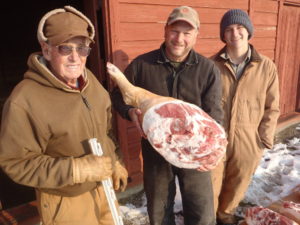
Three generations of Drewrys, Howard “Cutter,” Michael, and David, display a ham produced on the farm. (Courtesy Drewry Farms)
A conservation easement does not open the land to public access, and landowners do not give up control over their land. In fact, landowners work closely with a partner organization to craft an easement that protects the specific conservation values of the property while allowing uses and additional structures that will contribute to its value as a working farm.
In Michael Drewry’s case, the Virginia Outdoors Foundation (VOF) is the partner organization that “holds” the easement, ensuring that its terms will be enforced and the land protected forever. The conservation values Drewry is protecting include cropland, pastureland, timberland, woodland, and stream frontage – nearly 200 acres of U.S. Department of Agriculture Prime Farmland Soils and riparian buffers along two branches of Milltail Creek – not to mention a rural viewshed of value to all who drive through the area on State Route 31.
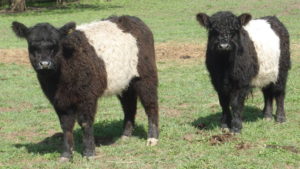
Belted Galloway, a breed of cattle originating in Scotland, are among the rare breeds of livestock the Drewrys raise. (Courtesy Drewry Farms)
Restrictions designed by Drewry and approved by VOF will protect these values in perpetuity while allowing him or his descendants to subdivide the property once (into two parcels) and to build two additional houses as well as farm buildings, roads, and utilities that don’t impair the property’s conservation values. Drewry continues to operate Drewry Farms Blueberries and the Palmyra Inn and to raise hogs, cattle, and chickens and to grow vegetables and crops. He expects the easement to deter threats to these undertakings such as transportation and industrial development.
Creating a conservation easement requires the work of a range of professionals. While Drewry completed the legal work himself, he turned to Conservation Partners to coordinate the work of other professionals and oversee the process, mapping the property and preparing required documentation.

Hams cure in the Drewry Farms smokehouse. The Drewrys relish food raised and processed on the farm. (Adam Ewing Photo Courtesy Drewry Farms)
For many landowners, the help of qualified professionals who specialize in conservation easements is essential. Conservation Partners works with landowners to address concerns, such as liens on the property, that may arise along the way.
“Any landowner who cares for their land as much as the Drewrys should call us to see if their property might qualify for a conservation easement and to get an idea of the benefits they might receive,” said Taylor Cole, Conservation Partners’ Director of Landowner Services.
Conservation easements pose a unique opportunity to determine the future of a family’s most important asset. They say the deceased can’t tell the living what to do. Conservation easements, noted Drewry, are the one area in law where they can because of the significant public benefits easements provide.
To talk with Conservation Partners about protecting your land, contact us at 540-464-1899 or info@conservationpartnersllc.com.

